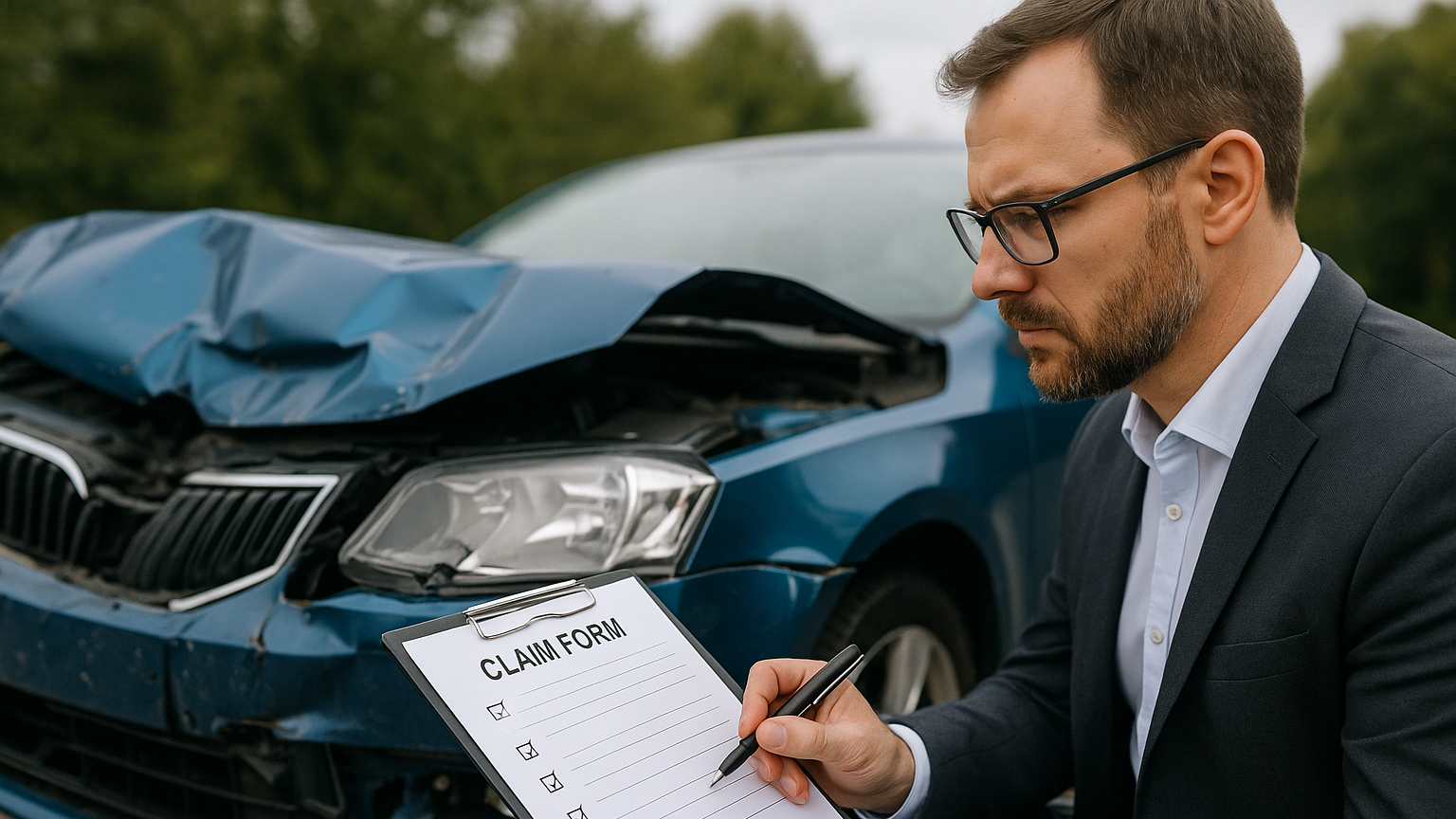
Car Claims Settlement: How the Process Works – and What You Should Know
An accident is always an unpleasant event – whether it's your fault or not. This makes it all the more important that the subsequent claims settlement process is reliable and swift. But many policyholders ask themselves the same questions: How long does the settlement take? What does the insurance company cover? And what can I do if there are problems?
In this blog post, we explain how claims settlement for motor vehicle damage works, what you should bear in mind and how you can protect your rights vis-à-vis the insurance company. We also provide an overview of common experiences with various providers – from HUK-COBURG to AXA and DEVK – and show how Copart Insurance supports you in the settlement process.
What Does Claims Settlement Mean in the Motor Vehicle Sector?
Claims settlement refers to the process in which an insurance company examines and assesses the damage after a traffic accident and arranges for the corresponding payment to the injured party or a garage.
A distinction is made between:
- Liability Claims: If a third party is responsible for the damage
- Comprehensive Damage (Partial or Comprehensive Cover): If you yourself are the policyholder and injured party (e.g. in the event of theft, hail, vandalism)
The aim of claims settlement is to compensate for the financial loss – either through repair, payment or replacement.
How Does the Claims Settlement Process Work?
The exact procedure may vary slightly depending on the insurance company, but generally follows these steps:
- Claim Notification: Immediately after the accident to your or the opposing insurance company – by phone, online or via the app.
- Appraisal: An expert examines the damage. For minor damage, often only a calculation or photo documentation is required.
- Decision by the Insurance Company: Depending on the type of insurance: Repair approval, payout (notional or actual), total loss classification.
- Processing: Following the insurance company's decision, either the payment is made to you or a workshop is commissioned to carry out the repair. In the event of a total loss, the vehicle is usually disposed of – depending on the agreements between the insurance company and the expert.
How Long Does It Take to Settle the Claim?
One of the most frequently asked questions after an accident is: How long does it take for the insurance company to pay out? The answer: It depends – but as a rule you should expect around 2 to 6 weeks.
The actual duration depends on various factors:
- How quickly the claim was reported
- Whether all documents have been submitted in full
- Whether the damage is clearly traceable (e.g. with an expert opinion or photos)
- Whether it is an economic total loss
- Whether the claim is a liability or comprehensive claim settlement
Experience shows that the processing times of many large insurers – including HUK-Coburg, AXA, DEVK, VHV, R+V, WGV, KRAVAG, LVM, Allianz or Provinzial – are within the specified time frame, provided no particular complications arise.
If processing is delayed, it is worth following up in a friendly manner and, if necessary, setting a reasonable deadline for feedback in writing.
Tip: Make a note of all conversations, save emails and ideally keep a small claims diary. This will allow you to keep track of things and respond quickly if necessary.
What Settlement Options Are There?
- Concrete Settlement: You have the vehicle repaired and submit the invoice. The insurance company pays the actual costs.
- Fictitious Settlement: You have the damage paid out on the basis of an expert opinion – without repair.
- Total Loss Settlement: The insurance company pays the replacement value minus the residual value.
What Happens in the Event of a Total Loss?
If the repair costs are higher than the replacement value, the vehicle is an economic total loss. In this case, the damaged vehicle is usually not repaired but disposed of by the insurance company.
And this is where Copart comes into play:
Copart works as a settlement partner for many insurance companies and handles the residual value marketing of damaged vehicles. As the owner, you receive the settled amount – without having to worry about the sale yourself.
Would you like to know how the process works or which vehicles are currently on offer?
👉 Find out now at Copart and discover vehicles
Conclusion: Claims Settlement – Well Prepared, Quickly Completed
Fair and speedy claims settlement is crucial for those involved in an accident. If you know the process, know your rights and document them well, you can save a lot of time and hassle.
Whether liability, partially comprehensive or fully comprehensive – every insurance company offers different ways of settling claims. It is important that you report the damage quickly, make sure you have complete documentation and remain active in the event of problems.
And if it comes to an economic total loss? Then Copart will work with your insurance company to ensure that your vehicle is handled professionally – quickly, transparently and reliably.
Frequently Asked Questions (FAQs)
How long does it take to settle a claim?
Usually 2-6 weeks. Depending on the insurer, the amount of damage and the completeness of the documents.
What should I do if the claims settlement is slow?
Set the insurer a deadline in writing, e.g. 10 working days. If there is a further delay: contact the ombudsman's office or seek legal advice.
What is the difference between fictitious and actual settlement?
With actual billing, the repair is actually carried out. With a fictitious settlement, you receive a payment based on an expert opinion.
How does residual value marketing work in the event of a total loss?
If you do not repair your vehicle, Copart will market it in cooperation with the insurance company – e.g. through online auctions.